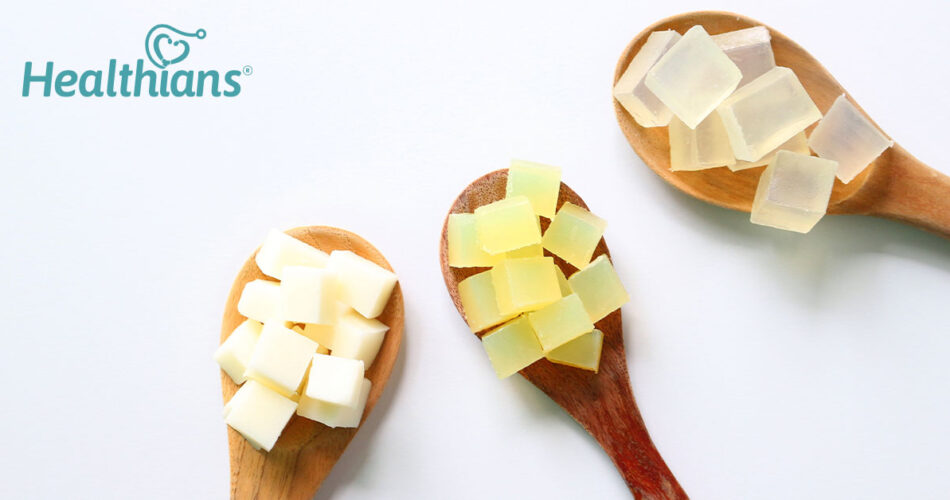Contributed by Harleen Kaur
Introduction
Why have most women’s skincare routines included glycerin for so long? Glycerine, also known as glycerol, is a naturally occurring and non-toxic chemical extracted from plants, and animal fat.
Well, as the cold winter winds begin to blow, your wardrobe needs to be stocked with cosy sweaters, jackets, and pullovers, as well as your skincare regimen.
Glycerine has been an important product in the beauty routines of our mothers’ and grandmothers’ since time immemorial. . This miracle liquid, which has an abundance of incredible skincare advantages, developed a niche for itself long before the market was flooded with expensive creams, lotions, moisturisers, and serums.
Here we are helping you with some imperative tips to use glycerine this winter for better skin:
Glycerine as a moisturiser
If your skin tends to turn dry and flaky during winter, using glycerin can improve the skin’s moisture levels. It attracts moisture from the environment and traps it in your skin to make it appear healthy, soft and hydrated. Glycerine may help tame the dullness and keeps the skin supple and soft.
Glycerine as a blackhead remover
There are instances when no amount of effort would help you get rid of the unsightly black dots. Blackheads look bad. Fortunately, there is help at hand because glycerin is one of those wonder ingredients that also works on blackheads like a miracle.
Prevents acne
Glycerine is oil-free and non-comedogenic in addition to having strong moisturising and hydrating characteristics. For skin that is oily and prone to acne, it is a great moisturiser. In addition to calming existing acne to stop it from worsening, it helps in preventing clogged pores. Acne is well treated by glycerin.
Apply a drop each of glycerin and lemon juice to the affected region, let it sit for 5–10 minutes, then rinse it off.
Glycerin fights skin diseases
Psoriasis and other skin conditions can be treated with glycerine. According to studies, glycerine helps in the regular maturation of skin cells. This is important because psoriasis causes thick, scaly skin because skin cells begin to shed before they are fully mature. Applying glycerine prevents abnormal shedding and allows the cells to fully mature. This property of glycerin helps in the wound-healing process as well. By helping in the process of skin repair and regeneration, glycerin stimulates skin healing and helps in the battle against fungus-related conditions like eczema.
Glycerin makes sure your skin is hydrated and soft
Glycerine is a powerful element in cleansers since it works hard to keep your skin moisturised, reduces skin irritation from the cleansing process, and keeps it soft and supple, particularly in winter. It primarily helps to draw moisture-containing particles from the environment to the skin, which reduces dryness and keeps the skin soft, smooth, and radiant.
Final thoughts
In this climate, when the skin is more likely to become dull and dry, glycerine is very crucial for your skin. It helps to moisturise the skin from the inside out and is a sturdy substance. Due to its ability to sweeten, this water-soluble component is widely employed in both the food and pharmaceutical industries.
Glycerine comes from lipids, primarily triglycerides, found in plants like soybean or palm as well as in animal fat. Even though glycerine is gentle on the skin, it is still a good idea to examine a small patch of it on your body to check for any allergies before using it.
FAQ Frequently asked questions
Q How can I use glycerine to glow my face?
Add one teaspoon of glycerin to three teaspoons of milk.
Create a solution by gently mixing.
Apply this mixture on your face, then rest for the night.
Wipe it off the next day.
Q Is 100% glycerine good for the face?
Your skin’s natural moisture can be locked in with glycerin, preventing overdrying. If you have skin problems such as acne, this might be especially helpful.
Q Is glycerine better than hyaluronic acid?
Both components have their own advantages. Hyaluronic acid is a good option for naturally oily skin whereas glycerin adds moisture, bounce, and balance to the skin.
Q Can I apply glycerin directly on the face?
Glycerin can be used as a moisturiser, however, because it is thick, applying simply glycerin on the face might not be a smart idea. Dust is attracted to it, which can cause breakouts and acne. Always dilute it before using it on your face, you can dilute it with water or rosewater.




